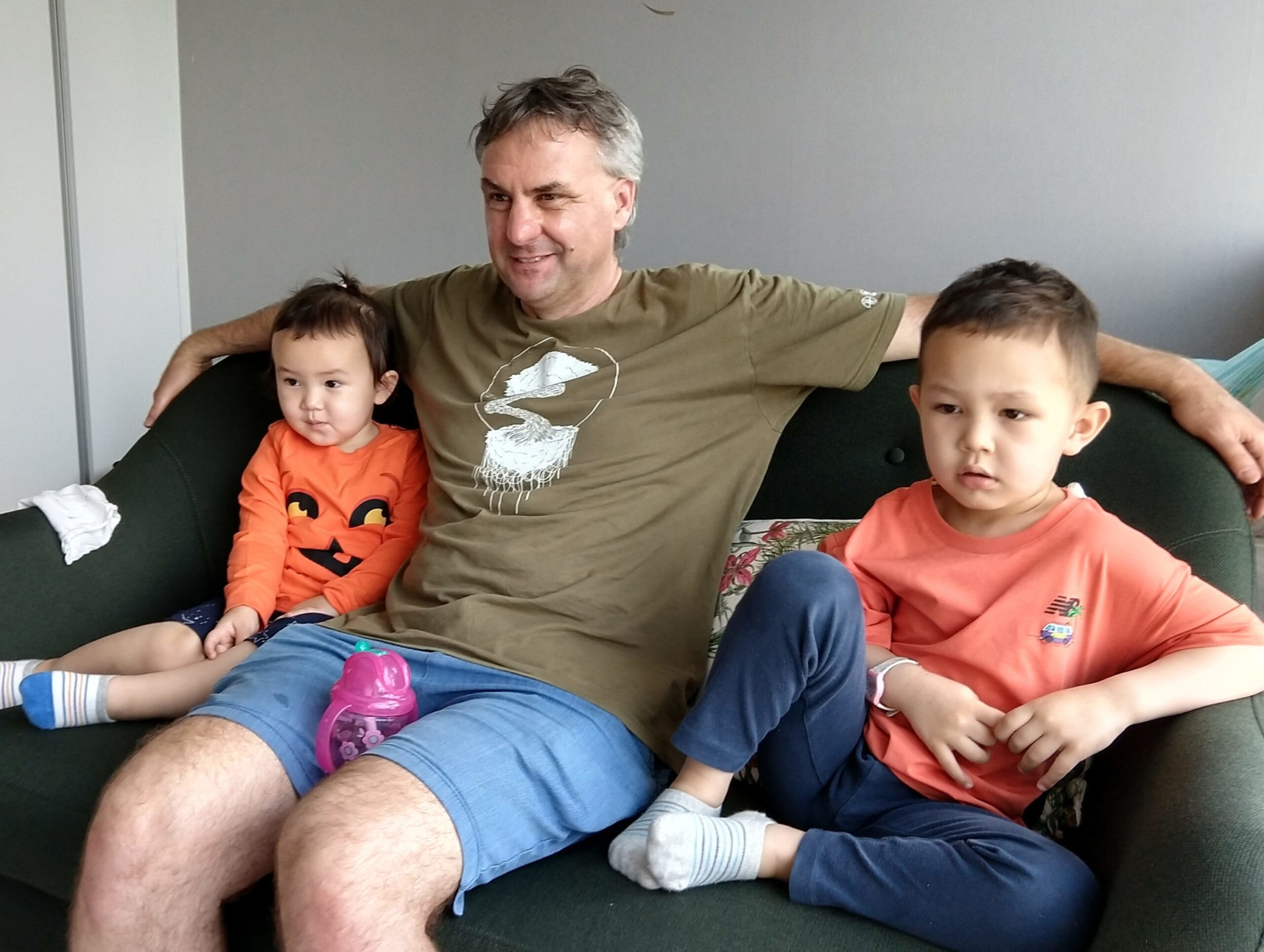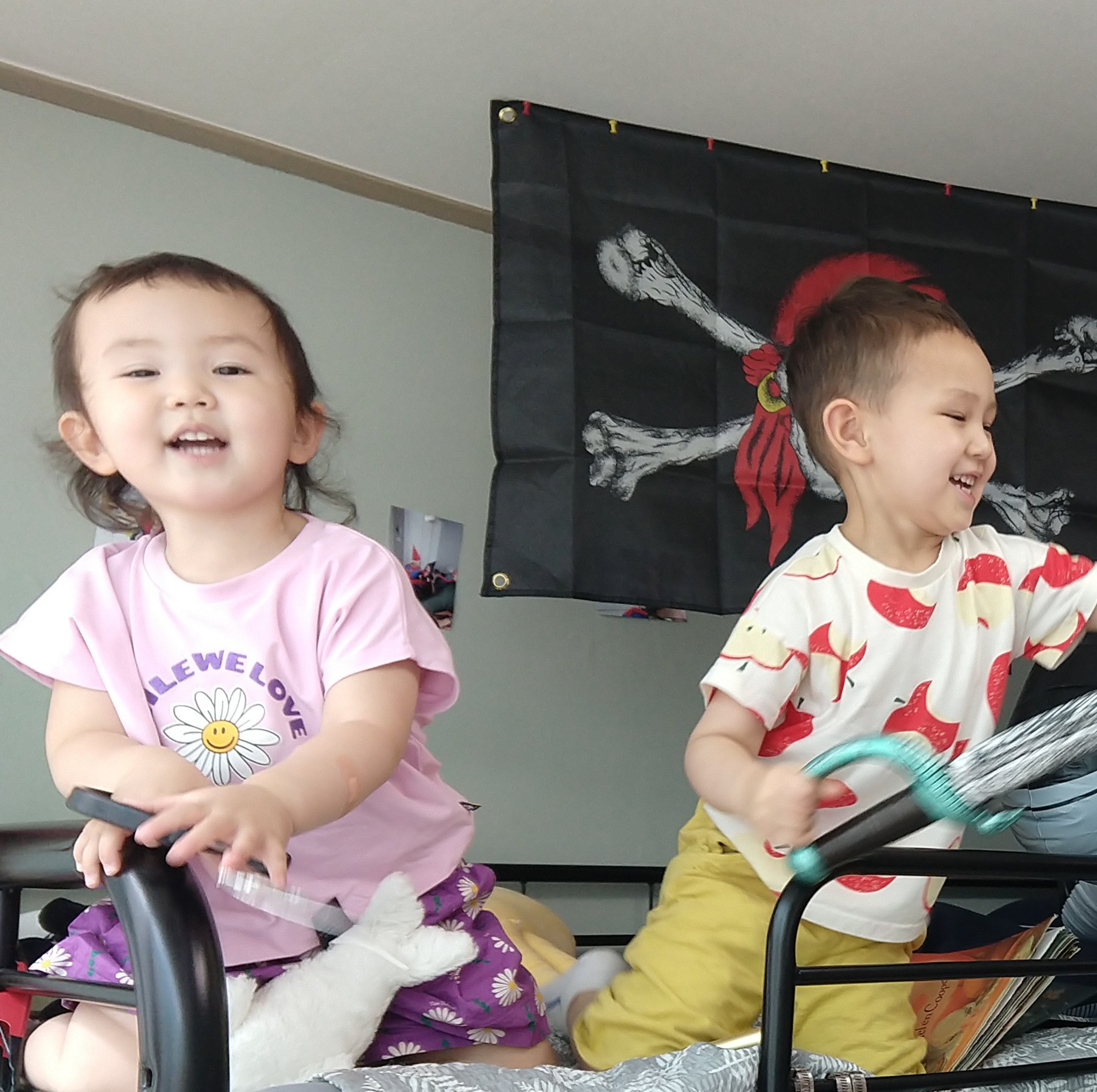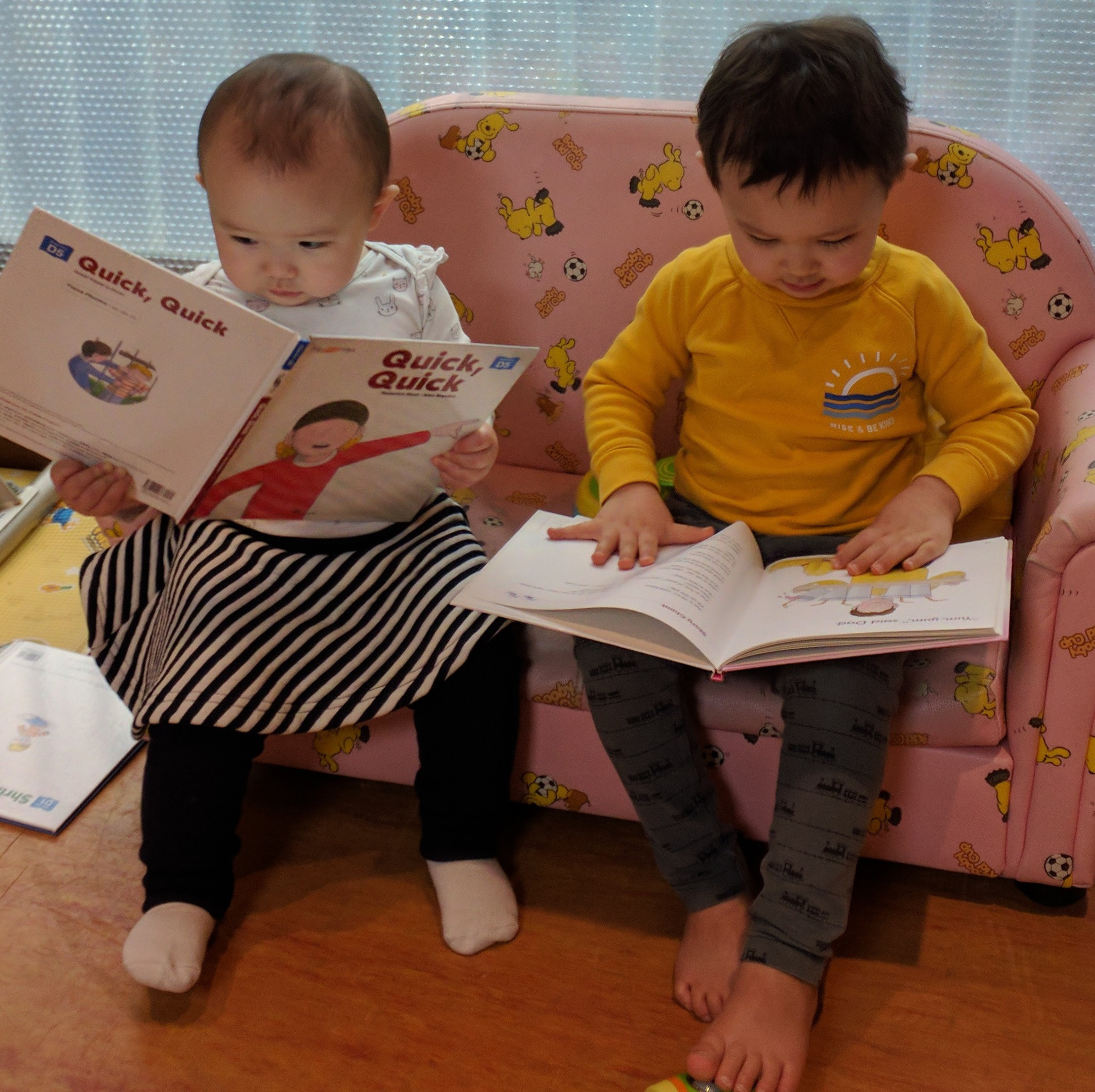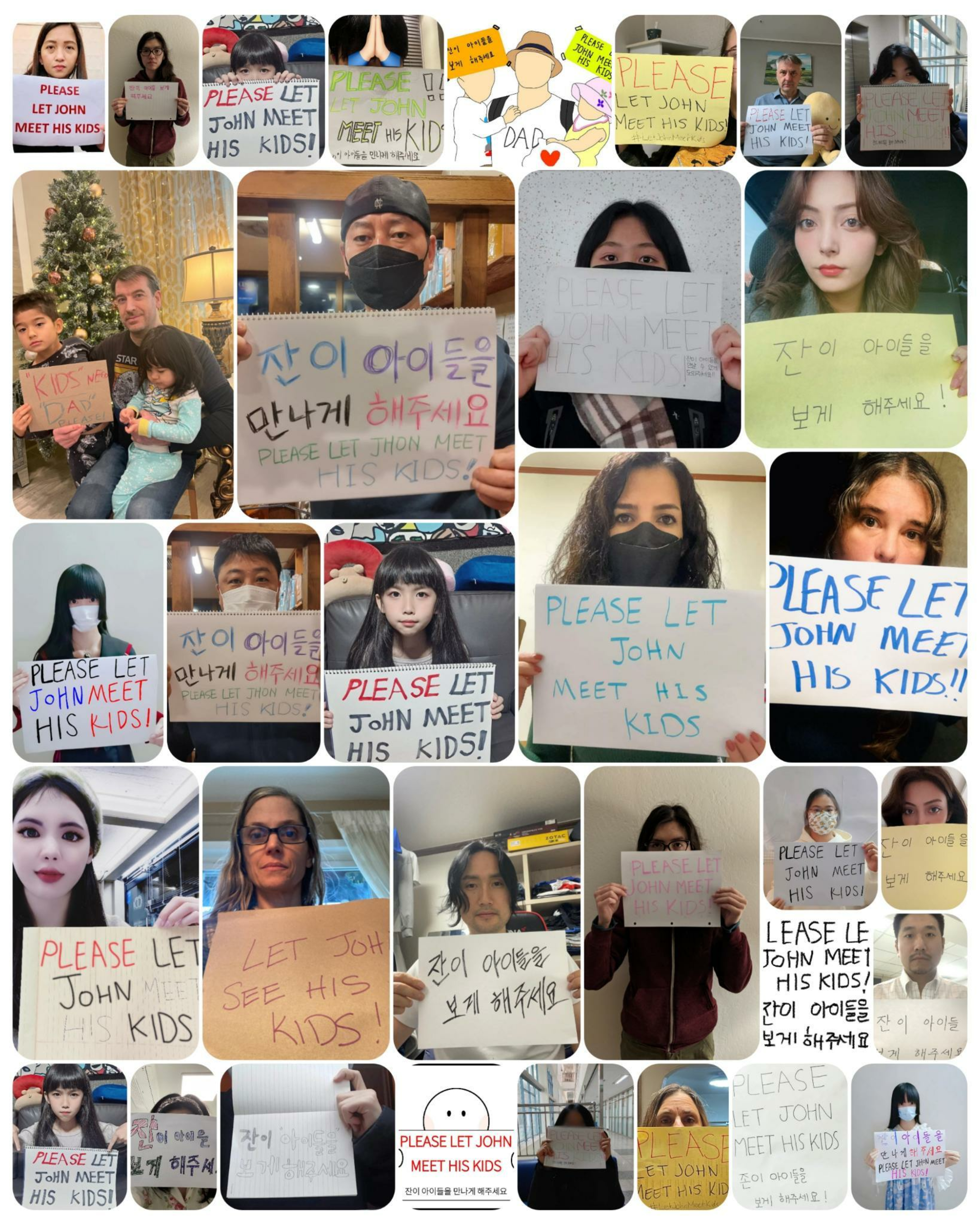John Sichi won’t stop logging miles on his treadmill until his children are found and brought back to the Bay Area.
The San Francisco resident and software engineer is on a one-man mission to bring his son, 6, and daughter, 4, back to the U.S. after his spouse took them to Korea around four years ago and never returned. His children have not been named for legal reasons.
The incident has since turned into an international parental child abduction case, drawing U.S. and South Korean officials into a stalemate (opens in new tab) on how to enforce court-ordered custody rulings and the Hague Convention (opens in new tab) international treaty.

To bring attention to his cause, Sichi has been walking solo on a treadmill in parts of Seoul, South Korea, since October—logging 176 miles so far and averaging about 6 to 9 miles per day in good weather. He’s determined to keep conducting his “single-person protest (opens in new tab)” until he’s reunited with his children, or “I drown in a pool of my own sweat,” he told The Standard.
He’s also campaigning for 50,000 petition signatures (opens in new tab) to send to the Korean National Assembly by Feb. 24.
Sichi said he chose the treadmill as a visual metaphor for struggling to be reunited with his children but failing to make progress. He also hopes it transcends language barriers and communicates his plight to the South Korean public.
“When I first started the protest, I thought people would laugh at me or ignore me, just walk on by,” Sichi said. “That’s not what happened. So many people were curious, wanted to understand what was happening.”
Sichi’s international legal battle began during a rough patch in his marriage when his wife took their toddlers on a trip to South Korea in November 2019.
“Our marriage had been unhappy for a while, and so she said she wanted to take some time with her family and cool off for a little bit,” said Sichi, who expected his wife to return with their children about a month later.
Sichi, who’s since filed for divorce, says he attempted to negotiate with his wife to bring the children back to San Francisco. But after those attempts failed, Sichi turned to SF County Superior Court, which ruled in August 2020 (opens in new tab) that the children must be returned to the U.S.

A Seoul family court later ordered that the children be immediately returned to their habitual residence in accordance with the Hague Convention, a multilayered treaty between the U.S. and around 90 countries that puts in safeguards for international adoption and works to prevent the abduction, sale or trafficking of children. Korea’s Supreme Court later affirmed (opens in new tab) the lower court’s decision. But Sichi has faced challenges with the South Korean government enforcing the order.
In May 2022, Sichi, accompanied by a court enforcement officer, attempted to retrieve the children from their mother’s apartment at the time but faced resistance from his wife. Ultimately, the officer could not enforce the order because the children would not consent to be separated from their mother, Sichi said.
Sichi remembered feeling totally helpless at that point and has not physically seen his children since the incident.
“That’s the end of the enforcement,” Sichi recounted. “All of this time and effort had gone into trying to get a good situation for the children and to have court orders observed. And then just this completely broken system is being used as an impediment to a proper resolution of the case.”
The Standard reached out to Sichi’s wife’s law firm, Yulchon, which declined to comment further.
Since August 2020, Sichi has spent the majority of his time in South Korea, attempting to regain custody of his children. He was previously able to see his children through court-ordered visits throughout 2021, before the May 2022 incident. Sichi told The Standard he had recently reestablished communication with his children through audio calls and is working with the U.S. State Department to locate them.
‘A little mini-breakthrough’
“That was a little mini-breakthrough,” Sichi said of the calls. “The calls have been very strained and difficult, but they can at least hear my voice saying, ‘Daddy is here. I love you. I miss you.’ I say it in English and Korean to let them know that I’m really trying to be reunited with them.”
Sichi describes working with various governmental agencies here and abroad to track down his children as an “agonizingly slow” and arduous process. While Sichi is appreciative of the U.S. State Department’s efforts, which have included a visit by one of the department’s special advisors for children’s affairs (opens in new tab) to South Korea, Sichi has been highly critical of the handling of the case by the South Korean government.

“[The Korean Ministry of Justice] just throws up its hands at every point and says, ‘So sorry we can’t help on that. We can’t do that. Talk to your lawyer.’ They’ve never helped with anything at all, including things like locating the children. So it’s super, super, super frustrating,” said Sichi, who believes that international custody protocols need to be radically reformed.
“The current process is what I would think of as actually state-sponsored child abuse,” Sichi said.
South Korea’s Ministry of Justice did not respond to The Standard’s request for comment.
A 2022 report (opens in new tab) by the State Department identified “a pattern of noncompliance” with aspects of the Hague Convention and said, “Korean law enforcement authorities regularly failed to enforce return orders in abduction cases.”
In response to The Standard’s request for comment on the case, the U.S. State Department said, “We regularly raise the need to resolve outstanding international parental child abduction cases under the Hague Convention. […] The department engages actively with parents, stakeholders, and countries across the globe, to identify, resolve, and prevent IPCA cases.”

In the meantime, all Sichi can do is walk forward.
“Starting the protest has actually been massively motivating,” Sichi said. “It’s a way of taking agency in the situation when it’s very hard to get help from any government officials.”
